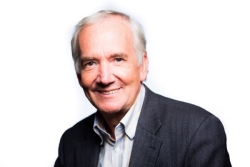For those who are not familiar with Dr. Hawkins, he is a world-renowned coach, professor, leader, author, consultant, and proud grandfather – among many other things. He probably could retire if he wanted to, but he’s not ready because, as he mentioned during his talk, we are in the midst of a leadership development revolution.
“We’re 19 years into the 21st century, but we’re not doing 21st century leadership development. We’re doing 20th century leader development,” Hawkins told the crowd of 50 people – mostly coaches themselves. According to Hawkins, there are nine leadership tipping points – places where leadership is changing necessarily for the next generation.






